Published
6 months agoon
By
zaghrah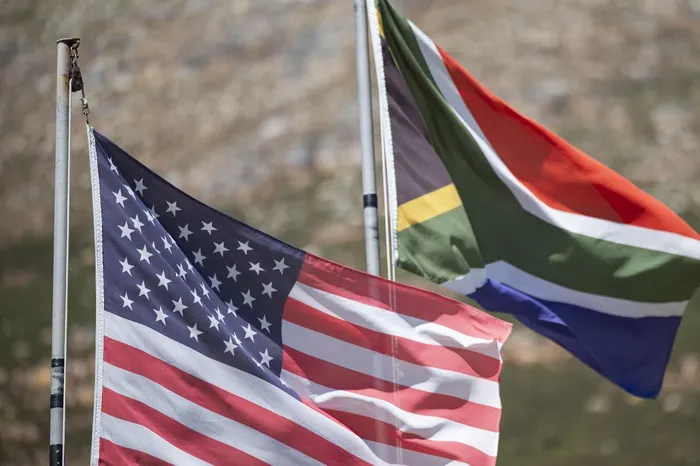
South Africa tried to play chess without showing up to the board. The US responded with a 30% tariff.
It’s hard to believe, but South Africa’s official envoy to the United States, Mcebisi Jonas, has never actually made a trip to Washington in his role. Not once. That startling revelation, confirmed recently by International Relations Minister Ronald Lamola, has reignited criticism over the country’s unusual and arguably reckless, approach to one of its most important global relationships.
Let’s break it down: since March 2025, South Africa hasn’t had an ambassador in the US. The last one, Ebrahim Rasool, was effectively booted for going nuclear on former US President Donald Trump. Instead of quickly filling that vacancy, the government appointed Jonas as a “special envoy.”
But here’s the kicker: Jonas hasn’t stepped foot in the US. And if that feels like a diplomatic misstep, that’s because it is.
In the chess game of international relations, showing up matters. It sends a message of respect, interest, and intention. But South Africa decided to skip the handshake altogether and now it’s paying a steep price.
In July, Trump signed an executive order slapping a 30% tariff on South African exports, one of the harshest penalties the US has handed out under his administration. This came just months after President Cyril Ramaphosa met Trump at the White House, without Jonas anywhere in sight and promised ongoing talks and deeper cooperation.
Back home, the Department of Trade, Industry and Competition (DTIC) and DIRCO tried to spin the story: talks were happening, strategies were being worked on, and a new ambassador was “coming soon.” But the truth was hard to hide: South Africa had left its most valuable trading partner without a voice on the ground, and the silence was deafening.
To be fair, Jonas wasn’t completely sidelined by accident. He, too, came with baggage, including past public criticisms of Trump that didn’t go unnoticed in Washington. The Trump administration reportedly rejected his “credentials” early on. That should have triggered a change in approach.
Instead, DIRCO doubled down, claiming that Jonas didn’t need to be in the US to do his job, that his role wasn’t subject to public scrutiny, and that everything was under control. It was, in effect, a PR strategy posing as diplomacy. And it failed.
By the time the tariff announcement hit, South African departments were scrambling. Negotiations had gone cold, US officials weren’t picking up the phone, and the fallout was immediate. Exporters were left in limbo, and no one in Pretoria had a plan to fix it.
On the ground, businesses have been vocal about the hit. A 30% tariff is no small matter, especially when the US remains one of South Africa’s biggest export destinations. Sectors like agriculture, automotive, and mining are already reeling from the cost implications.
On social media, South Africans have been less diplomatic. The hashtag #DiplomaticDisaster trended briefly on X, with users mocking the idea of a “ghost envoy” and calling the government’s handling of the US relationship “embarrassing,” “amateurish,” and “self-sabotaging.”
One post summed it up best: “How do you get hit with one of the worst tariffs in years… by doing nothing? Literally nothing.”
Both DIRCO and the DTIC insist a new ambassador will be appointed soon, and that back-channel talks are ongoing. But trust takes time to rebuild and the damage is already done.
Worse still, this wasn’t just a failure of one ministry or one appointment. It was a systemic failure of strategy, timing, and political foresight.
South Africa, a country that once prided itself on nuanced diplomacy and strong global partnerships, now looks unprepared on the international stage. And when your economy depends heavily on external trade, that’s not just a foreign policy problem. It’s a national one.
Diplomacy only works when you show up. In this case, South Africa didn’t and the cost is being felt in factories, farms, and boardrooms across the country.
{Source: BusinessTech}
Follow Joburg ETC on Facebook, Twitter , TikTok and Instagram
For more News in Johannesburg, visit joburgetc.com
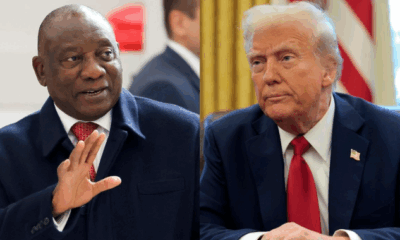

US lashes out after South Africa expels Israel’s top diplomat


Diplomatic Shockwave: South Africa Expels Israeli Envoy, Drawing US Ire
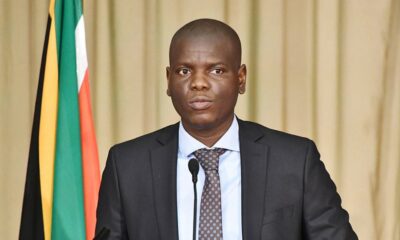

Iran unrest drags South Africa into a foreign policy reckoning
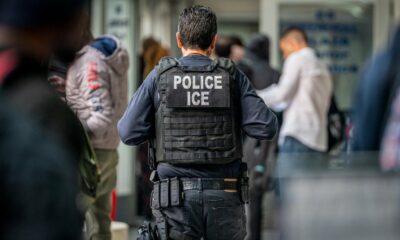

More migrants dying in ICE detention as numbers surge under Trump
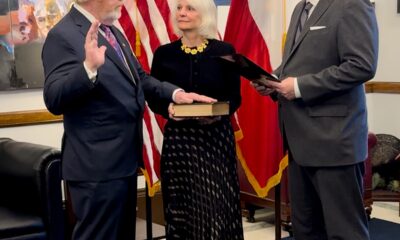

South Africa’s quiet surrender: accepting Brent Bozell exposes diplomatic hypocrisy
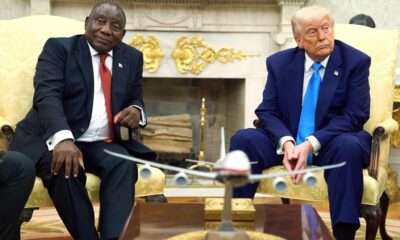

South Africa Won’t Block US Refugee Programme for White Afrikaners















